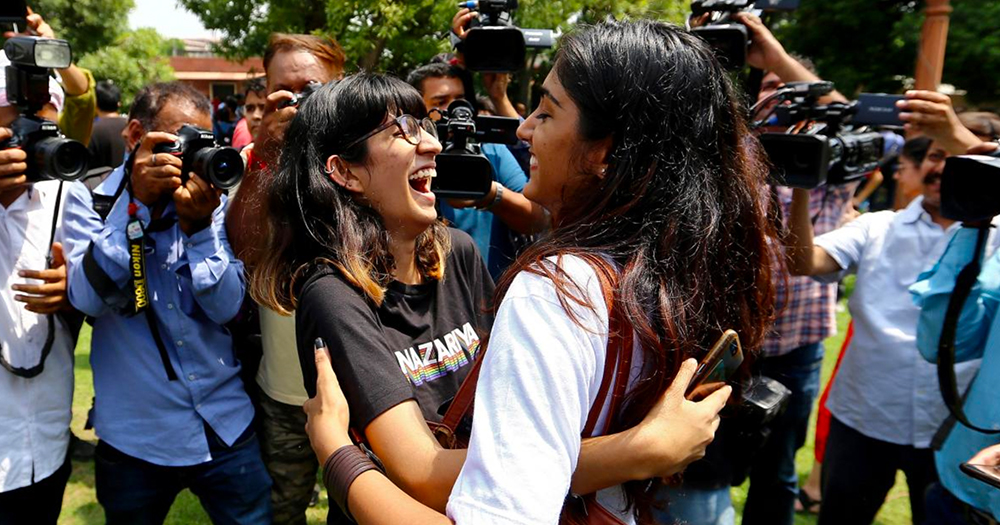India’s Supreme Court has overturned a 158 year-old colonial-era law, Section 377, which banned homosexual acts.
The verdict was announced in Delhi on Thursday morning and was met by cheers from crowds of India’s LGBT+ community and supporters who had gathered on the lawn outside the building.

The first word came from a young woman, Smriti, who shouted “it’s in our favour,” having seen a text message from a journalist who was inside the court.
“It’s a positive. I mean there’s so much work to be done, but it’s a great first step,” the university student, 19, said. “We’re not criminals in our own country.”

Section 377, is a 158-year-old colonial-era law under which a same-sex relationship was deemed an “unnatural offence” and was punishable by a 10-year jail term.
In 2009, a New Delhi High Court declared Section 377 unconstitutional but the judgment was overturned four years later by the Supreme Court, which stated that amending or repealing the law was a matter for parliament, not the High Court.

Activists say that Section 377 was seldom used to convict men (with fewer than 200 being convicted under the law in 2013), being more frequently it was used to blackmail and intimidate LGBT+ Indians.
In January 2018, it was announced that a large group of justices would convene to reconsider the law, following a petition by five LGBT+ people who said they were living in fear of being prosecuted.

Ritu Dalmia, one of the five LBGTI Indians who put their name to a legal petition that succeeded on Thursday, said the verdict made her feel hope once again.
“I was turning into a cynical human being with very little belief in the system, but honestly this has really shown once again that, in the end, we are a functional democracy where freedom of choice, speech and rights still exist,” she said.
Indian culture was said to be accepting of homosexuality before the imposition of conservative Victorian laws during the reign of the British empire in India.
© 2018 GCN (Gay Community News). All rights reserved.

comments. Please sign in to comment.